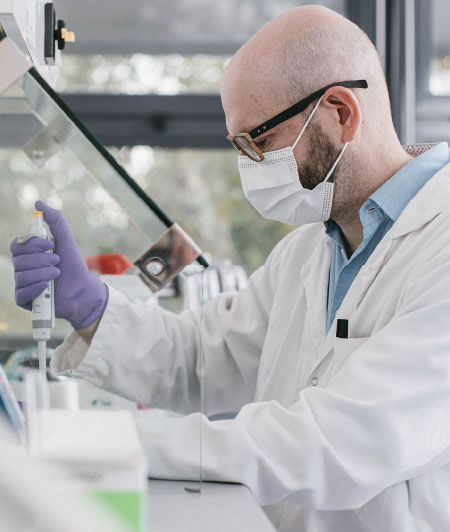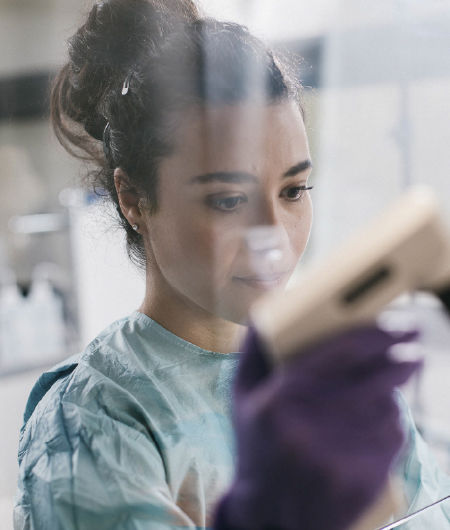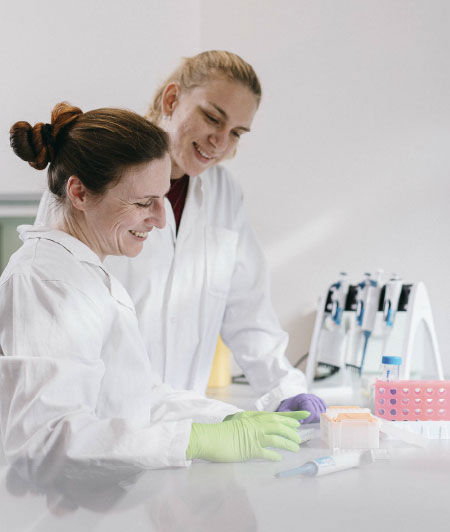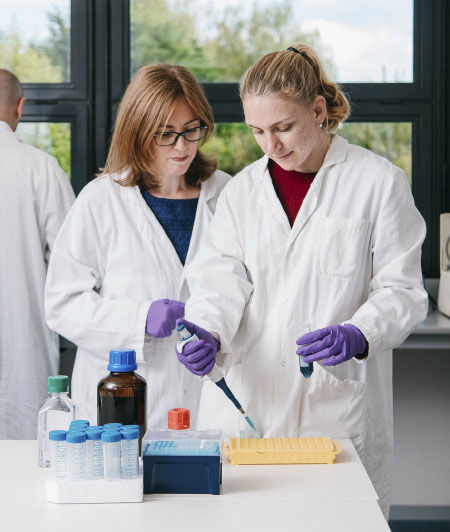Customer Service: +351 215 842 958
Case studies
Browse some examples of the projects we have built with our customers and performed for them. See the advantages our solutions brought to advance their research.
Evaluating the impact of key cell-culture parameter modulation on the predictivity for the identification of specific inhibitors and biomarkers on cancer models
Project
Our customer needed to investigate whether modulating key culture parameters could improve the predictivity of their colorectal cancer cell-based methodology used to select CDK8 inhibitors and/or identify biomarkers.
Our solution
We performed comparative analysis for them, which involved developing two HT-29 colorectal cancer models: as monolayers in a conventional incubator and as 3D spheroids under physioxia, in the presence/absence of gamma-interferon.
On each model, a viability assay was performed after 3 days incubation time with inhibitors, followed by large-scale proteome profiling analysis on 2000 targets from each cell lysates.

Biomarker, Cell Culture, Bioassays, Microfluidics
Development of cost effective and robust 3D Colorectal Cancer models for physiological drug response analysis
Project
Our customer needed to obtain in-vivo like responses to drug treatment, through monitoring parameters such as gene expression, biomarker analysis, cellular viability, invasion capability.
Our solution:
We established and implemented a physiologically relevant 3D Colorectal cancer cell-based assay. To answer questions related to variations at transcription and protein level, our methodology required long-term imaging at controlled temperature and gas levels (CO2 and O2), on both 3D cellular models and patient-derived samples. Impact of an anti-cancerous drug was investigated on colon cell lines (HT-29, HCT116 and LS174T) in conventional 2D monolayer and 3D spheroid cultures, in hypoxia or normoxia. Methods used were metastatic invasion assay, gene expression analysis by RT-PCR on hypoxic response and oncopathway genes, and large-scale protein profiling to detect proteomic levels of metalloproteinases and surface proteins known to be involved in colorectal cancer invasion.

Screening of optimal conditions in order to obtain a difficult to produce protein in HEK 293 cells
Project:
Obtaining high yields of pure and active difficult-to-produce recombinant proteins can be a real challenge and may require significant investment. The rapid screening of multiple production and purification conditions on a small scale is fundamental to identify the optimal strategy.
Our solution:
To select the best production conditions in HEK 293 EBNA cells, we first performed a small volume expression study to define optimal production time and ratio of DNA/transfection reagent. Moreover, we tested addition to the cell culture medium of various supplements (amino acids, inorganic salts, lipids…), aiming at boosting the expression level by varying medium composition. On identification of the best production conditions, several buffer compositions were screened at purification level to improve stability and solubility of the protein of interest. Different buffers, detergents, sugars, as well as α-helix stabilizers, and many more, were tested in a 96-well format for high-throughput.

Production of eGFP mRNA labeled with fluorophore to assess its encapsulation efficiency in LNPs
Project
We produced eGFP mRNA labeled with fluorophore, enabling our customers to assess its encapsulation efficiency in LNPs and monitor its delivery efficiency in mammalian cells.
Our solution:
Tebubio lab has developed a plasmid template for the mRNA production, optimized for efficient transcription and translation in mammalian cells. By using Andy Fluor-UTP (refs. C410, C412, C414, C416, C418), it is possible to obtain fluorescent mRNA detectable at green, orange and red wavelengths. As a proof of concept, we have produced eGFP mRNA modified with Andy Fluor 647-X-UTP, transfected it in HEK293 cells and detected the mRNA delivery in the cells as well as the eGFP expression by fluorescent microscopy.

